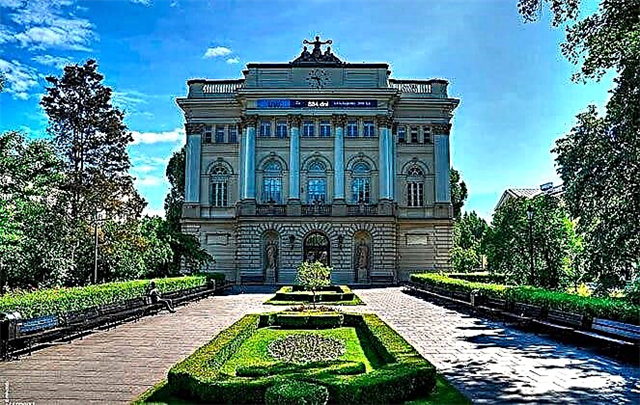2014 was a turning point not only in the external geopolitics of Russia, but also in the internal structure. Due to political motives, the state imposed a number of restrictions on law enforcement officials. One of these innovations is the ban on traveling abroad.
Traveling abroad for a police officer: a short excursion into the problem
The history of the problem started in 2014, when the political crisis of Ukraine began. Due to the change in political course and the annexation of Crimea to Russia, a complex and tense geopolitical situation has arisen, which has not subsided to this day.
The general rule imposing a ban is enshrined in Art. 15 of Federal Law No. 114. The article contains a list of conditions under which a citizen of Russia cannot leave its territory. If you carefully read the rule of law, then it does not contain a direct reference to police officers.
Only the Federal Security Service is present. However, attention is drawn to paragraph 1 of the indicated article. It states that the restriction is imposed on persons who have access to state secrets. It is this point that concerns the employees of the Ministry of Internal Affairs.
The restrictions are dictated by the following considerations:
- Protection of state secrets;
- State protection;
- The safety of the employees of the Ministry of Internal Affairs.
The logic is simple: state power structures are afraid of the likelihood of disclosing state secrets, which will clearly affect the country's security in a negative direction.

Important! Prohibition in the strict sense of the word is not such. The order of the Government is only advisory in nature. The leadership will determine where the policeman can go and where not. The authorities are not afraid to use such recommendations when deciding whether to issue an exit permit.
An important fact is the imposition of recommendations on the policeman's family. If a wife or children want to relax abroad, then they may face a ban.
Where entry is allowed
Despite the general prohibition, there are a number of countries in which police officers are not prohibited from traveling. The list is published on the website of the Association of Tour Operators. It included:
- South Ossetia;
- Uzbekistan;
- Turkmenistan;
- Tajikistan;
- Cuba;
- Kyrgyzstan;
- Belarus;
- Armenia;
- Azerbaijan;
- China;
- Kazakhstan;
- Vietnam;
- Abkhazia.
You May Also Like
Only 13. It is easy to see that most states are geographically close to the Russian Federation and represent the near abroad. The problem is that Tajikistan or Kyrgyzstan have relatively little value as a vacation destination. However, the list also includes countries with mild and even tropical climates: China, Cuba and Vietnam.
Beach tours are only 4 destinations: Cuba, Vietnam, China and Abkhazia. Azerbaijan, Uzbekistan and Armenia are considered excursion tours.
Rest in other places weakly expresses a clear focus, especially Turkmenistan, for entry into which a visa is generally required.
The political nature of the list is obvious. All of these states are in warm relations with the Russian Federation.
How to get an exit permit
A massive package of documents is not required to obtain a permit. All that is needed from a police officer is a report, and for the trip itself - a passport, which is issued by the personnel department. Only the head of the unit can authorize the trip itself.
Step-by-step instructions for obtaining permission:
1. Submit a report to the head of the department. The report must contain the following information:
- Purpose of departure;
- Date of entry and exit;
- Source of financing;
- Travel agency details;
- It is necessary to indicate why the employee of the Ministry of Internal Affairs chose the indicated place for rest;
2. If the management makes a positive decision, the employee is given a permit with prior notification;
3. Visit the HR department with a permit visa. Here you must indicate the period of stay, which, according to the regulations, should not exceed 14 calendar days. If there is a need to stay in the host country for a longer period, then you will have to ask the immediate superior to discuss this issue with the higher management.
It is recommended to indicate in the report the most detailed travel itinerary so that the manager does not have doubts about the trip.
A trip abroad can easily get frustrated if you have tax or utility bills in arrears. It is recommended to pay off all debts before the vacation.
Important! It is recommended to submit a report a couple of months before the planned trip. The bodies of the Ministry of Internal Affairs are already overloaded with bureaucracy, so there is no need to expect a quick solution to the issue.
You May Also Like

Exceptions to the rule
An employee of internal organs has the right to unhindered travel to any country in the world in a number of cases. They are all exceptions.
These include the following situations:
- Death or serious illness of a close relative. Close relatives are understood as the wife, children, parents, brothers or sisters;
- An urgent operation, necessary for the policeman himself, and which cannot be carried out on the territory of Russia;
- Inheritance dispute;
- Resolution of the issue of alienation of foreign property.
These situations are exceptional. Nobody will keep an employee of the Ministry of Internal Affairs "locked up" if his own father dies or his house is taken away.
On a note! Such grounds will be significant arguments, but everything ultimately depends on the decision of the immediate superiors. In other words, they can refuse even if the above condition is met.
Will the ban loosen
The exact information is not yet known. The geopolitical situation testifies to the opposite: restrictive recommendations will continue to exist for quite a long time. The intensity of the conflict is growing every year, and the next "warming" is not expected. This is especially true of NATO member states.
The list of countries in which rest is recommended for law enforcement officials is extremely small: only 13 states, while at the moment there is about 200 countries. Moreover, the overwhelming majority of the list represents the neighboring countries. Not many people want to go on vacation every year, for example, to Kyrgyzstan.
Despite the existence of such restrictive recommendations, you should not be disappointed ahead of time. Ultimately, everything will depend on the boss. If the arguments turn out to be weighty, then there is a high probability of obtaining an exit permit. Here, the key role is played not by the letter of the law, but by the human factor.











